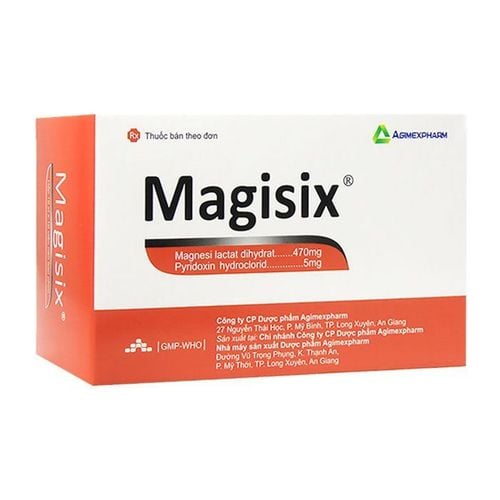This is an automatically translated article.
Magnesium is a mineral that is very important for the function of the body. If you do not meet the recommended daily amount of magnesium, it will lead to many negative consequences for your health.1. Why does our body need magnesium?
Adults who consume less than the recommended amount of magnesium are likely to increase inflammatory markers. Inflammation is linked to diseases such as heart disease, diabetes, and some cancers. In addition, low magnesium is a risk factor for osteoporosis.
There are many studies that have shown that eating foods high in magnesium and other minerals can help prevent high blood pressure in people with pre-hypertension.
Intravenous magnesium is indicated for the treatment of conditions such as eclampsia during pregnancy and severe asthma attacks. Magnesium is also a key ingredient in many antacids and laxatives.
Very rarely, severe magnesium deficiency, however, if it does occur, the following may occur:
Kidney disease Crohn's disease or other conditions that affect digestion Parathyroid disease Taking antibiotics birth or medicine for diabetes and cancer Being an elderly person Abuse of alcohol. Doctors will sometimes prescribe magnesium supplements for people with these conditions. If you take any medication for a long time, your doctor can check your magnesium level with a blood test to timely adjust the medication and supplement magnesium.

Magie thấp là một yếu tố nguy cơ gây bệnh loãng xương
2. How much magnesium does the body need each day?
Recommended Dietary Allowance (RDA), you can supplement a reasonable dose of magnesium in 2 ways including: eating and using magnesium supplements for children and adults, with the following dosages:
| TT | Độ tuổi | Lượng magie theo khuyến nghị |
| Trẻ em | ||
| 1 | 01 - 03 tuổi | 80 mg/ngày |
| 2 | 04 - 08 tuổi | 130 mg/ngày |
| 3 | 09 - 13 tuổi | 240 mg/ngày |
| Nữ giới | ||
| 1 | 14 - 18 tuổi | 360 mg/ngày |
| 2 | 19 - 30 tuổi | 310 mg/ngày |
| 3 | Từ 31 trở lên | 320 mg/ngày |
| 4 | Mang thai |
- Dưới 19 tuổi: 400 mg/ngày - Từ 19 đến 30 tuổi: 350 mg/ngày - Từ 31 tuổi trở lên: 360 mg/ngày |
| 5 | Cho con bú |
- Dưới 19 tuổi: 360 mg/ngày - Từ 19 đến 30 tuổi: 310 mg/ngày - Từ 31 tuổi trở lên: 320 mg/ngày |
| Nam giới | ||
| 1 | 14 - 18 tuổi | 410 mg/ngày |
| 2 | 19 - 30 tuổi | 400 mg/ngày |
| 3 | Từ 31 trở lên | 420 mg/ngày |
3. How much magnesium is enough?
Most bodies get too much magnesium from food and do not need magnesium supplements. Excessive use of magnesium supplements can be toxic to the body. In addition to supplementing magnesium through daily food, the highest dose of magnesium needed is:
65 mg/day for children from 01 - 03 years old 110 mg/day for children from 04 - 08 years old 350 mg /day for adults and children from 9 years old and up. These doses are the highest that you can add to your diet. The safest and best source of magnesium is still recommended to be from food, so adding large amounts of magnesium to your diet can be dangerous. It is therefore not advisable to consume more than the maximum recommended amount.

Nguồn cung cấp magie an toàn và tốt nhất vẫn được khuyến cáo lấy từ thực phẩm
4. What food sources are naturally rich in magnesium?
Natural dietary sources of magnesium include:
Green vegetables like spinach Nuts Legumes like peas and soybeans Whole grains. However, you should be aware that magnesium can be lost during refining and food processing, so it's important to process it to retain the highest amount of magnesium possible.
5. What are the consequences of magnesium overdose?
Magnesium overdose causes adverse health effects such as:
Nausea, cramps and diarrhea, soft stools Not safe for people taking diuretics, heart medications or antibiotics People with If you have diabetes, intestinal disease, heart disease or kidney disease, you should not take magnesium, if you use it, you need to consult with your doctor. Signs of a magnesium overdose include nausea, diarrhea, low blood pressure, muscle weakness, and fatigue. In very high doses, magnesium can be fatal.
Please dial HOTLINE for more information or register for an appointment HERE. Download MyVinmec app to make appointments faster and to manage your bookings easily.
Reference source: www.webmd.com












